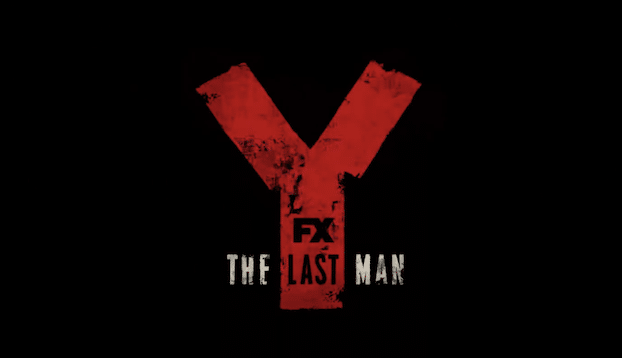NOTE: Some spoilers from throughout the premiere season of, “Y: The Last Man” are present in this review
Selling a post-apocalyptic drama series is becoming an increasingly challenging proposition within the modern TV landscape. Selling a post-apocalyptic drama series built around gender identity, social oppression and political commentary, rather than the more digestible threat of zombies, mutants or some other hazard, is an even tougher sell. That politics-fueled pitch is what Y: The Last Man is built around, inspired by an award-winning series of graphic novels that were originally published under DC Comics’ now-shuttered Vertigo imprint. Of course, you wouldn’t necessarily know this, since Y: The Last Man has scrubbed any DC branding from everything beyond a quick mention during its opening title sequence, no doubt because the series is being hosted on Disney-owned channels and/or streaming platforms in most regions, and Disney naturally owns DC’s main superhero industry rival, Marvel.
The journey to television was immediately fraught and challenging for Y: The Last Man to boot. The series was originally conceived as a trilogy of movies, to be produced by Warner Bros. subsidiary studio, New Line Cinema. After several false starts, that movie plan ultimately fell apart, and Y: The Last Man was subsequently re-conceived as a premium cable TV series, being set up at FX soon afterward. Even then however, the series would languish in development hell for years, with failed pitches, cast shuffles and the Disney-Fox merger of the late 2010’s all working against it. The completed Disney-Fox merger then saw this DC-licensed project falling into the lap of Disney, who moved the series to their freshly-acquired Hulu streaming platform in the eleventh hour, via the FX on Hulu catalogue. This final move to Hulu finally helped the stars align for Y: The Last Man, with the series becoming a Star Original on Disney+ within most international markets, save for here in Canada, where the show ironically aired on the Canadian FX channel as a premium cable series, like it was originally supposed to in the U.S.
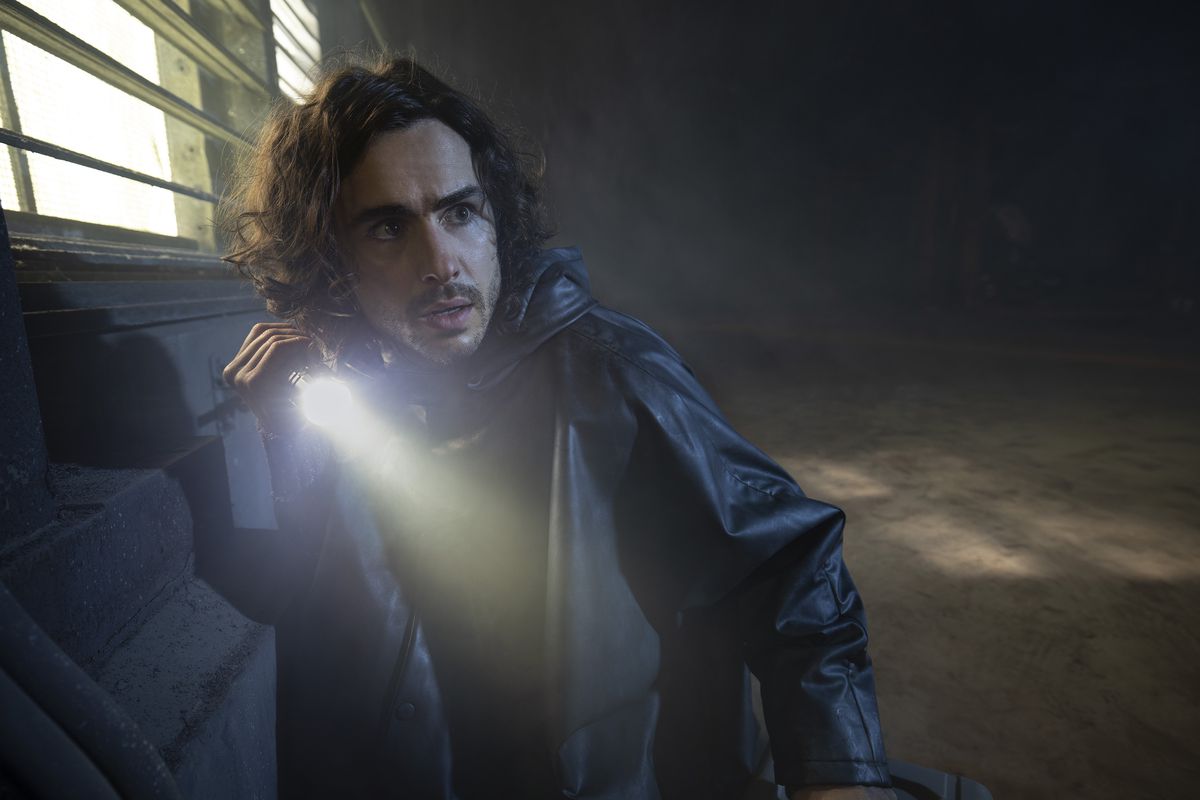
Then, before its first season had even concluded, Y: The Last Man got cancelled, allegedly due to issues with the actors’ contracts and production schedules. Then again, the show’s middling reception and questionable viewership probably didn’t help matters. The series continues to shop for a new home at the time of writing, but at this point, it’s looking pretty grim for DC’s long-struggling post-apocalyptic adaptation. This background is all very important to understand before one can assess whether Y: The Last Man’s one and likely only season was a success in the end, because for any failings that the series suffers, its fate feels undeniably tragic, especially when the show’s pitch feels a day late and a dollar short overall.
To be fair, the hook behind Y: The Last Man is pretty fantastic; A mysterious event kills every living creature on Earth with a Y-chromosome, including all cisgender men, some cisgender women with certain genetic quirks, all transgender women, and any male mammal of any species. This leaves Earth solely populated by the majority of cisgender women and transgender men, and Y: The Last Man subsequently examines the civil unrest and infrastructure collapse, among other issues, that quickly result from every natural-born man on Earth suddenly dying simultaneously. There is however an additional twist, as one lone cisgender man, Yorick Brown, and his male pet monkey, Ampersand, somehow managed to survive the mass Y-chromosome extinction event. Oh, and Yorick also happens to be the son of the newly-appointed U.S. President, Jennifer Brown, who must quickly hide her son from prying eyes, once his survival is discovered.
This premise is awesome in many ways, both because it provides a very clever, female-fronted spin on a post-apocalyptic drama series, and also because the show’s extinction event is cool and creative in general. It forces examination of issues that we never really pay mind to in our modern world, like the fact that so much of the American economy (and others) is dependent on truck drivers, almost all of whom are men. Likewise, men have superior training in business, military and manufacturing, due to lingering gender bias in these industries, leaving the American economy and defenses crippled after all of the men are killed. Naturally, conspiracy theories, male mourning and radical ideas about how to bring men back also become rampant from here, with the surviving women of the world being torn between trying to preserve the Y-chromosome and learn how to bring men back, or trying to embrace a new world where the future truly is female, and men are a thing of the past. This conflict alone is enough of a draw, but Y: The Last Man quickly develops an issue with over-egging the pudding, something that trips up its dreary, sluggish early episodes especially.
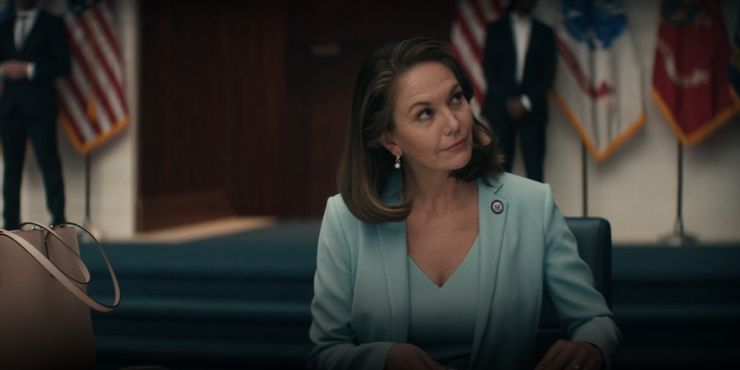
The series suffers from two major Achilles’ heels, even when its debut season noticeably improves during its back half. The first and greater of these issues is dystopia fatigue, an issue that would have consistently plagued Y: The Last Man regardless of how good or bad it turned out to be. Dystopia fatigue was already setting in for many TV audiences by the late 2010’s, but in the post-COVID-19 world of the 2020’s, it’s been heavily accelerated, to the point where mainstream appetites for post-apocalyptic shows are teetering at an all-time low. Sure, a small number of post-apocalyptic shows still seem to defy dystopia fatigue in 2021, with Netflix’s Sweet Tooth, another Vertigo/DC Comics adaptation, funny enough, being a popular example, but in most cases, audiences are beginning to quickly reject post-apocalyptic dramas at the gate, simply because they’re not in the mood for them anymore. Making these kinds of dystopian dramas that initially surged off the back of AMC’s formerly mega-successful series, The Walking Dead is already an uphill proposition because of audience burnout. Y: The Last Man is yet another derivative Walking Dead wannabe in too many respects as well, not even having the potential fun of the undead to rely on, while still banging the same tired drum about humanity being terrible and society being on a knife’s edge that we now know is complete bullshit in the post-COVID-19 era. That misanthropic Walking Dead era of TV is over, and Y: The Last Man didn’t seem to get that memo.
The second major issue that constantly trips up Y: The Last Man is that the show feels generally overthought, and it has a habit of fixating on details that, frankly, won’t matter to most viewers. The series’ very first episode makes the head-scratching decision to take place one day before its apocalyptic event, for example, setting up a bunch of character relationships that amount to nothing, and a bunch of trivial character details that are quickly rendered meaningless within the show’s Y-chromosome-decimating apocalypse. From there, Y: The Last Man can even feel like a bait-and-switch at its worst, with the narrative sometimes taking awkward detours wherein it stops dead to cram a bunch of gender studies theory down viewers’ throats. Sure, it’s interesting, but it means nothing in the context of the show’s over-arching storyline, and simply stops the stakes cold. Even the interesting implication of underground testosterone markets for trans men aren’t adequately explored in the end, simply being mentioned in passing and quickly forgotten. Y: The Last Man is a perfect example of a series that tries way too hard to flex how supposedly smart it is, something that merely serves to make it slower and more distracted.
Fortunately, when it focuses on actually being a survival drama, like it was marketed, Y: The Last Man tends to function better. Its latter five episodes are noticeably stronger than its former five, which finally see Yorick being sent on a mission to locate a Harvard geneticist, Dr. Allison Mann (yeah, the show comments on how cheeky this surname is too), while accompanied by a mysterious operative called Agent 355, one that works for a shadowy organization called the Culper Ring. Who are the Culper Ring, or at least the show’s version of them? Who knows. They were clearly being built up as a Season 2 threat, so as such, 355 spends much of Season 1 struggling with her past, which manifests through bad dreams, sleepwalking and a questionable personality. It sounds a bit trite, though if I’m being honest, 355 is probably one of this show’s best characters, thanks largely to 355 actually thinking and operating like a credible survivor, and being performed very well by Ashley Romans.
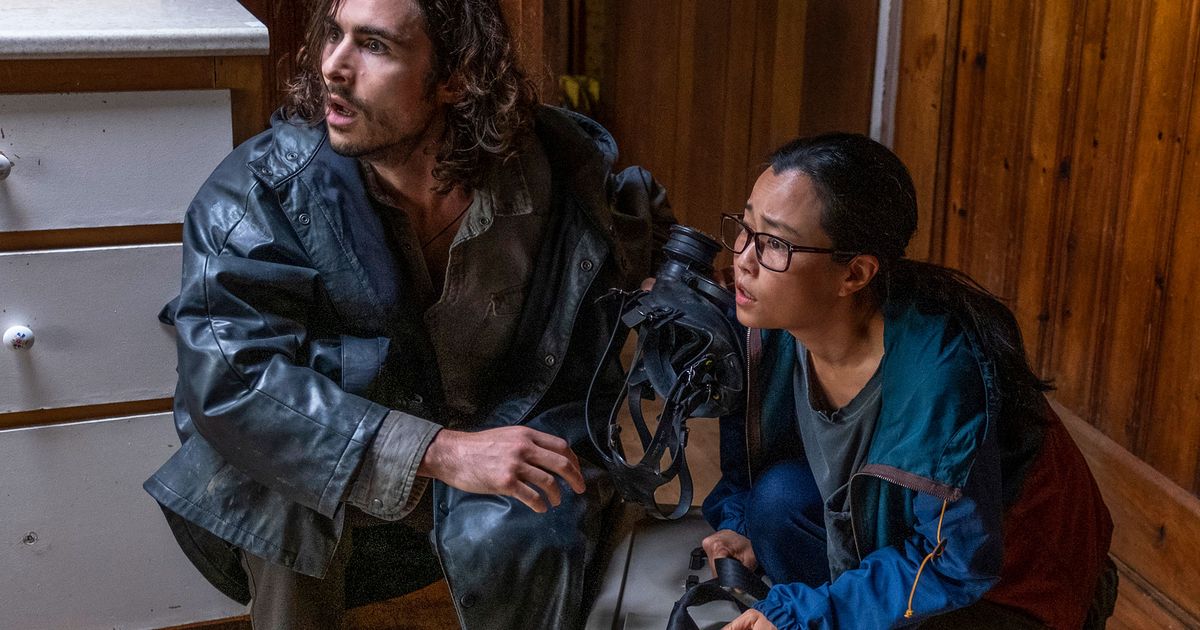
Yorick, meanwhile, constantly drags down the show’s narrative by being a contrived liability. Ben Schnetzer does what he can to make Yorick feel charming, but Yorick nonetheless drags the storytelling down at every turn. He literally feels like a human manifestation of the frustratingly stupid character A.I. in a bad video game escort mission, intentionally running into harm’s way simply to advance the plot, and obsessing over his lost girlfriend, Beth in lieu of having an actual thought in his head. Not that Yorick is missing much there anyway, because Beth is eventually revealed to have been radicalized by a terrorist group, one that’s determined to overthrow the U.S. government, because… I guess they had nothing better to do? Yeah, this shocking turn for Beth is a pretty big stretch, to say the least.
This also leads me into the political element behind the series, with Diane Lane’s Jennifer Brown, Yorick’s mother, struggling to hold together a rapidly fracturing chain of command in the United States. Sadly, this is another area where the show too often gets distracted, and over-fixates on the wrong details. The political storytelling mostly consists of suspicion, squabbling and an eventual coup that’s rendered moot by Beth’s terrorist outfit anyway. There are some interesting character arcs that are eventually touched upon here, such as Jennifer’s Chief of Staff, Christine Flores discovering that she’s potentially pregnant with a male baby, or the daughter to the late former President, Kimberly Campbell Cunningham, played in another standout performance by Amber Tamblyn, struggling to find her place as the head of an ethical conservative order that aspires to keep the considerably liberal Jennifer in check. Kimberly is the one personality in Y: The Last Man that successfully presents an alternate perspective to the show’s fairly intrusive liberal bias, one that’s too often quick to paint its right-wing characters as seditionists, gossips, liars and cheats, while the left-wing characters are usually portrayed as more sympathetic, heroic and put-upon. Depending on your own political leanings, there may be times where you feel either attacked if you’re conservative, or pandered to if you’re liberal.
Like I said though, when Y: The Last Man ditches the politics and is content to be the survival drama it’s meant to be, it does tend to be a fairly solid show… Most of the time. Much of the survival material outside of Yorick’s group revolves around a radical tribe of cult-like women called the Daughters of the Amazon, or just ‘the Amazons’ in the show’s case, headed up by Missi Pyle’s Roxanne, a former homicide detective with a mama bear complex and a heavily misandrist dogma. Yorick’s sister, Hero, alongside Hero’s transgender best friend, Sam, and former government Press Advisor, Nora Brady and her daughter, Mack, all end up caught in the Amazons’ orbit, presenting several of Y: The Last Man’s best and most exciting storylines. Even then however, the show’s Season 1 portrayal of the Amazons is merely meant to be a trojan horse for Nora, who eventually murders Roxanne after revealing her as a fraud, and seizes control of the Amazons for herself. Nora, as it turns out, is actually the show’s take on a major villain from the Y: The Last Man comic books, Victoria, another promising Season 2 tease that we’ll probably not see pan out at this rate, sadly.
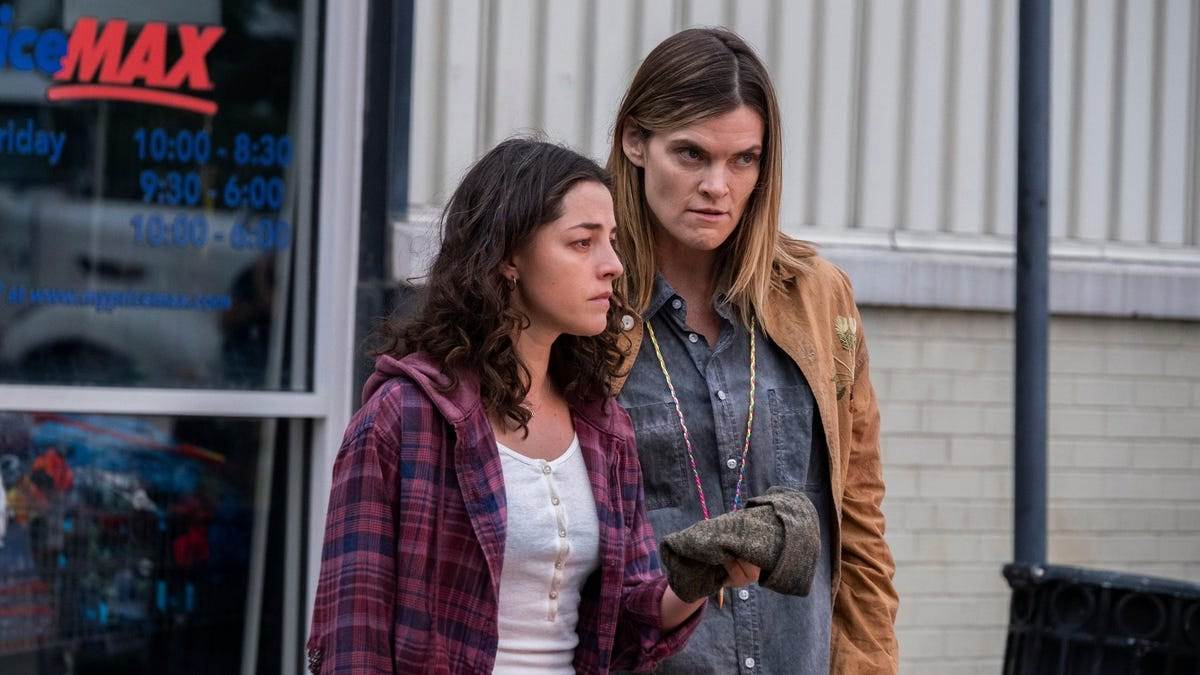
Y: The Last Man may achieve the feel of a harrowing post-apocalyptic drama, and indeed, the series probably would have been hailed as revolutionary and brilliant if it had premiered about seven years ago. Like I said though, the series is ultimately a day late and a dollar short. Its lengthy development period leaves it feeling too derivative and dull to conquer TV’s growing dystopia fatigue in the 2020’s, and its gender politics hook doesn’t manage to effectively mesh with the survival drama that fans of the source comics, and genre TV enthusiasts overall, would likely be coming to see. The source material is undeniably challenging, but unfortunately, that’s not really an excuse here. Even worse is that the Y: The Last Man comics are so much more fun and vibrant than their TV adaptation, which instead completely throws out the comics’ clever sense of humour and striking presentation to instead become a plodding, pretentious bore.
In some respects, it’s unsurprising that Y: The Last Man was quickly cancelled, since it’s too confused about what it wants to be, who it wants to appeal to, and how to present its ideas in a way that consistently engages its audience. The series does improve enough by the end of its current ten-episode run where I wouldn’t root against it being rescued by some other streaming platform, but at this point, I don’t think the odds of that happening are terribly high. It really is a shame that Y: The Last Man’s live-action adaptation worked so hard to exist, only to quickly die on the vine, but sometimes, that’s how it goes. We just have too many shows like it lately, and many of those competing shows just straight up do this genre better, let alone the brilliant comics that this disappointing TV series sprang from.

